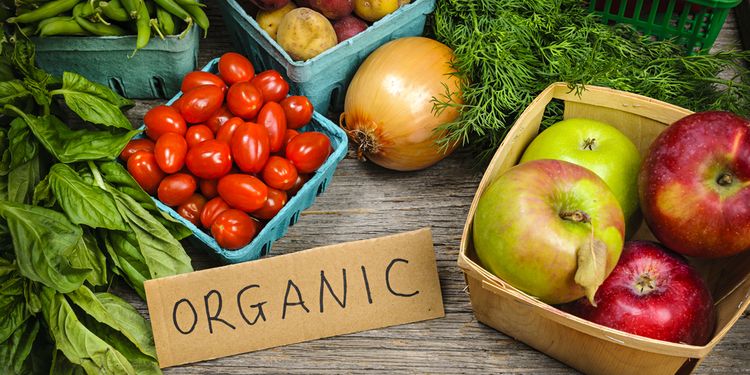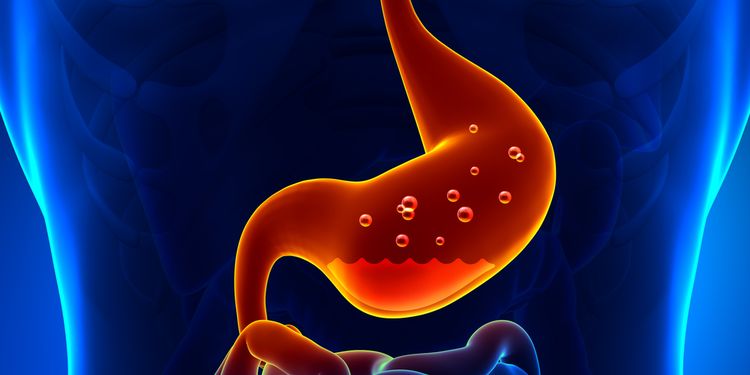10 Health Benefits Of An Anti-Inflammatory Diet

Chronic inflammation can wreak havoc on you. When you eat foods that have inflammatory elements — ones that your body responds to as if it’s being attacked, it’s likely that chronic inflammation will crop up. You may notice that you have achy joints, puffiness in the face, bloating, an allergic response, or irritable bowel symptoms.
Dr. Mark Hyman explains that treating the symptoms of chronic inflammation rather than the cause(s) is like “taking a lot of aspirin while you’re standing on a tack. The treatment isn’t more aspirin or a strong immune suppressant, but removing the tack.”1 He also notes that the overuse of prescription antibiotics and a proclivity toward antibacterial everything in developed countries can remove the good bacteria that our bodies need to flourish.
Introduce some less-than-good-for-you foods into an already overtaxed, unhealthy gut, and before you know it you’ll have chronic inflammation and infections. Fortunately, an anti-inflammatory diet can help you remove that pesky tack and get you on the road to better health, all while incorporating delicious foods into your diet.
Let’s take a look at some of these foods, and then we can examine their benefits.

Anti-Inflammatory Food Suggestions
Vegetables: Beets, bok choy, broccoli, Brussels sprouts, cabbage, carrots, cauliflower, collard greens, kale, onions, peas, salad greens (washed), sea vegetables, spinach, squashes, and Swiss chard.
Fruits: Apples, blackberries, blueberries, cherries, nectarines, oranges, peaches, pears, pink grapefruit, plums, pomegranates, raspberries, and strawberries, which are all lower on the glycemic index.
Fungi: Enoki, honey brown, oyster, shiitake, and white button mushrooms.
Seafood: Oysters, mussels, clams, sardines, roe, halibut, or wild Alaskan salmon.
Protein: Fish, pastured eggs, grass fed beef or bison, pastured pork, chicken, or wild game.
Fat: Coconut oil, avocado oil, olive oil, ghee, avocados, grass-fed butter, tallow, or duck fat.
Limit or Eliminate Caffeine: Two to four cups of green, oolong, or white tea or 1 cup of organic, fair trade coffee per day.
Beans and Grains: Legumes and pseudo-grains like quinoa and buckwheat are up for debate. They’re definitely a no-no for anyone with an autoimmune disorder. If you’re dealing with one, nuts and seeds should be eliminated as well. Modern-day grains, legumes, and pseudo-grains have been modified so much that they bear little resemblance to their original form. If you do choose to consume them, make sure they’re whole, heirloom varieties and non-GMO. Sprouting, soaking, or slow cooking them will make them easier for your system to process.
Spices: Turmeric, curry powder, ginger, garlic, Celtic sea salt, basil, cinnamon, rosemary, and thyme are fantastic additions to almost any diet.
With that out of the way, onto the benefits…

1) Your Brain Will Work Better
Chronic inflammation has been shown to increase depressive feelings and contribute to mental exhaustion, brain fog, indecisiveness, and anxiety.
Eating loads of sugar, carbs, processed foods, and bad fats can cause blood sugar abnormalities that result in insulin resistance, as well as increased body fat, dysbiosis, and inflammation.
Eating foods you’re sensitive or allergic to also causes inflammation via dysbiosis and leaky gut. Studies point to a direct link between unhealthy gut function, inflammation, and depression.2
Eliminating alcohol, processed foods, high fructose corn syrup, refined sugar, sugar alcohols, and trans fats can help you achieve a more alert mental state. Replace those empty calories with phytonutrients in the form of deeply colored fruits and vegetables, which are antioxidant-rich, anti-inflammatory, and give your brain and energy a healthy boost. Berries and dark, leafy greens should have a place on your plate.
Start your day with protein in the form of seafood, pastured eggs, or other animal sources. And don’t be afraid of good fat once you’ve eliminated the bad — your brain needs it to function well. After all, 60% of your brain is made of fat. One of the most important fats for brain function is DHA, an omega-3 found in seafood, pastured egg yolks, and grass-fed beef. While DHA is found in fish oil, it isn’t nearly as effective as DHA from whole foods.

2) Your Skin Will Glow
Have you ever considered that your skin can be affected by what you eat? It’s the largest organ in your body and reflects what goes on inside of you.
Your diet affects all parts of your health, and one of the biggest visual cues of good health is great skin.
Systemic inflammation and skin issues are directly related to one another. For example, an imbalanced gut flora (dysbiosis) is 37% more likely to be linked to acne.3 Food intolerances, sugar, bad fats, and processed foods alter the gut flora as well, potentially causing a leaky gut, which increases inflammation in the body.
Skin problems like dullness, acne, blemishes, psoriasis, rosacea, itchiness, and rashes have a huge dietary component. Cutting out refined sugar, yeast, gluten, dairy, soy, and processed foods could significantly improve your skin’s appearance by eliminating inflammation.
The antioxidants, vitamins, and minerals found in fresh produce can make you glow as if you’re lit from within. Incorporating foods such as seafood, coconut oil, ghee, turmeric, ginger, green tea, arugula, radishes, avocados, and hemp seeds can help your skin improve.

3) Weight Loss
Eliminating the common sources of food sensitivities and allergies such as corn, pasteurized dairy, gluten, soy, nuts, and yeast products is key to decreasing inflammation and can lead to weight loss.
For some, nightshades (bell peppers, eggplant, potatoes, tomatoes), eggs, raw dairy, and citrus can also cause inflammation.
Try an easy elimination diet by first getting rid of soy, dairy, eggs, gluten, and yeast. If you don’t notice a decrease in both your inflammation and weight within a week, consider eliminating the rest of the aforementioned foods.
Chris Kresser, LAc, asserts that, “Inflammation is the main contributing factor to the ‘diabesity’ epidemic. When fat cells become inflamed, they can create insulin resistance, which is a predictor of future weight gain. Inflammation of the brain can cause leptin resistance. Leptin balances appetite and metabolism through the hypothalamus. When the hypothalamus become leptin resistant, metabolism is impaired, thereby causing weight gain.” 4
Additionally, systemic inflammation decreases insulin sensitivity, which can lead to obesity, making it a huge contributor to insulin resistance and diseases like Type 2 diabetes.5

4) You Won’t Be Bloated Anymore
While it’s not a pleasant topic, dairy and gluten can cause bloating, constipation, diarrhea, and gas. Who wants to experience that?
Dysbiosis is the primary cause of these symptoms and occurs when the good microorganisms in your gut are outnumbered by the bad ones.
It also happens in SIBO (small intestinal bacterial overgrowth), when bacteria relocate to the small intestine where they shouldn’t be.
Normally the gut flora serves to keep out the bad stuff so that you don’t get sick, but if your flora is compromised, problem-causing bacteria may take up residence, and inflammation can follow.6 Yeast and parasites also contribute to dysbiosis and bloating.
When you have food sensitivities, dysbiosis is exacerbated by continually eating inflammatory foods. Once those foods are removed, often for 3-6 months, the body can begin the process of healing and rebalancing the gut flora. Probiotics and prebiotics can further help balance the gut.
Probiotics, either in supplement form or through fermented foods like kefir, kimchi, or sauerkraut help supply beneficial bacteria. Prebiotic foods like Jerusalem artichokes, jicama, chicory, garlic, and onions provide important nutrients that support the good bacteria. However, if you have SIBO, you’ll want to avoid these probiotics, as they’ll feed the bacteria that has migrated to your small intestine and will exacerbate the issue.

5) Cravings Will Be Under Control
Intense food cravings, especially for sweets, are a sign that something is out of whack with your body.
Refined sugars and artificial sweeteners can create a vicious cycle of inflammation and food cravings that perpetuate each other because of the chemical changes that occur in your body, especially in the gut and brain.
When your body is chronically inflamed, eating these foods will only make the situation worse.
Getting your cravings under control is the key to stopping this cycle permanently.
Dr. Frank Lipman, a functional and integrative medicine physician, is outspoken on the ills of sugar. To combat the cravings, he suggests:
- Eating regularly so that your blood sugar doesn’t drop and incite cravings
- Selecting whole foods, especially fruits, leafy greens, and other vegetables
- Starting your day with a good breakfast containing fat and protein
- Having healthy fats and proteins with each meal to balance blood sugar
- Consuming spices like cardamom, cloves, cinnamon, coriander, and nutmeg to naturally control cravings
- Taking a high-quality multivitamin and mineral supplement while getting as many vitamins and minerals as possible from food sources. Deficiencies in nutrients can make cravings worse. Vitamin B3, chromium, and magnesium may improve blood sugar control.6

6) Joint Pain Relief
Inflammation in the joints can be nagging or downright excruciating, leaving you feeling irritable and not wanting to move. While there are other factors contributing to joint pain, what you eat is often a significant source of inflammation.
Imagine what it would feel like to eliminate that pain simply by altering your diet. So simple! Sugar is a huge piece of the joint inflammation puzzle, as is our old friend gluten.
Dr. Terry Wahls, who has multiple sclerosis and was able to get herself out of a wheelchair after changing her diet, notes that “most people with chronic pain are addicted to sugar, eating 150 pounds of sugar and 100 pounds of flour or more each year. All that sugar and white flour crowds out the vegetables and berries that are critical building blocks cells need to do the chemistry of life properly.
We address the potential for unrecognized gluten sensitivity. Replacing sugar and grain-based products with vegetables and berries and removing gluten from the diet have often resulted in our patients reporting a steady reduction in pain, which often fades away entirely.”7

7) Autoimmunity Will Be Kept At Bay
It’s estimated that over 50 million Americans have some sort of autoimmune issue. Dr. Robert Rountree notes that autoimmune disease “develops in the context of an inflammatory diet.”8
Dealing with an autoimmune disorder can take a significant toll on you. If you’ve been diagnosed with one, you know the pain, discomfort, and feelings of helplessness that can come with trying to combat it. Changing your diet can decrease inflammation and flare-ups.
Phasing out inflammatory foods could have a big impact on you feeling better quickly. When you ingest foods that are triggers (like gluten and dairy), your body may react with bloating, joint pain, GI distress, or headaches. Sometimes no symptoms occur at all. In both cases, when you eat triggering foods, your body creates antibodies and inflammation, which can trigger an autoimmune reaction.
One of the key factors causing autoimmune disorders is chronic inflammation tied to food sensitivities, specifically gluten intolerance.9 Technically any food can cause issues for you, especially with autoimmunity, so doing an elimination diet is important to find your own personal triggers.
Eliminating dairy, gluten, grains, eggs, nuts, seeds, soy, citrus, tomatoes, potatoes, eggplant, and peppers is a good place to start with an autoimmune condition. Add these back in one at a time after 8 weeks and see how you feel. If certain foods cause symptoms, you should probably avoid them completely.
Bone broth, which contains gelatin, is extremely beneficial. Gelatin is a protein made of the amino acids glycine, glutamine, and proline, which can help to reduce inflammation and encourage a healthy gut. Glycine is also known to help with out-of-control immune activity. Dr. Leo Galland, an integrated medicine physician, advises you to add olive oil and fish oil, along with flaxseed oil and ground flaxseed to your diet. If your lifestyle can afford it, eat wild salmon at least three times per week.
He cautions that “the more meat, poultry, egg yolk, or dairy fat you eat, the greater your need for seafood, because these foods contain arachidonic acid, a pro-inflammatory omega-6 fatty acid. The more you use vegetable oils other than extra-virgin olive oil, the more seafood you need.”10
Working with a holistic nutritionist and a functional or integrative medicine doctor who understands the link between nutrition and autoimmunity may also be something to consider.

8) You’ll Burn Fat
Research shows that obesity and inflammation are nearly always linked to one another, as they both cause leptin resistance.
Leptin is a hormone produced by body fat that tells your brain when you’re full and thus helps you lessen your appetite and increase your metabolism. But if your body becomes leptin resistant, those messages don’t get to your brain, and it can be difficult to feel full. In other words, it makes it way too easy to overeat. In an obese body, the fat, muscles, and liver stimulate low-grade systemic inflammation that promotes further obesity and leptin resistance.11
The low-fat fad that began in the ’90s has really done a number not only on our bodies, but also on how we relate to foods that we consider to be “fatty.” Trans fats, polyunsaturated vegetable oils, and partially hydrogenated oils are a big no-no and should never be a part of any healthy diet.
But not all fats are bad — they’re actually essential for balancing inflammation. Fats like avocado, coconut, olives, ghee, tallow, and most nuts can actually help you burn fat! Making those a part of your anti-inflammatory diet will help you feel full more quickly, stabilize your blood sugar, and eliminate cravings.

9) Allergy Alleviation
Inhalant allergies cause the horrible histamine response that hits many people in the springtime — sneezing, runny and stuffy nose, watery or itchy eyes, and headache.
A sensitivity to dust, mold, pollen, or spores (called allergic rhinitis) can really make your life miserable. When pollen is in the air, seasonal allergies can drive you crazy.
If you’re one of the unfortunate people who has a reaction to a constant irritant like pets or mold, you know that suffering from allergies year-round is no fun. If you’re sensitive to allergens in the air, you may also be sensitive to foods.
When your gut is already compromised from inflammation, you’re likely to have an increase in histamine levels from eating certain foods. By removing the big offenders from your diet, seasonal allergies could significantly decrease.
Get rid of bananas, caffeine, red wine, white wine, champagne, beer, yeasty foods, fermented foods like kombucha, pickles, soy sauce, fish sauce, citrus, dairy, food additives, and dyes, peanuts, red meat, processed meats, sugar, artificial sweeteners, and wheat.

10) Your Adrenal Fatigue Will Get A Whole Lot Better
Two key hormones that we need for living full, healthy lives are produced by our adrenal glands. The adrenal glands sit on top of the kidneys and are responsible for producing the hormones cortisol (which helps manage metabolism and stress responses) and aldosterone (which regulates blood pressure).
Among other contributing factors, adrenal fatigue can occur when your body is chronically inflamed or if you’ve been eating the Standard American Diet, which is chock full of refined carbohydrates and inflammation – causing foods. Symptoms to look out for are anxiety, feelings of being overwhelmed, low-grade depression, difficulty getting out of bed, weight gain, and fatigue.
Dr. Sara Gottfried explains it well: “You feel tired but wired. You crave sugar, similar to an addict. You grow a muffin top.” Other symptoms include moodiness, difficulty focusing, irritability, fatigue, skin inflammation, sugary or salty food cravings, and excessive hunger.12
If you suspect you’re suffering from adrenal fatigue, consider conducting an elimination diet. At the very least, switch to eating the foods outlined in our anti-inflammatory foods list.
When you’re feeling burnt out, it can be easy to try and get false energy through alcohol, caffeine, sugar, and gluten-filled foods. Don’t do it! Doing so will only exacerbate the problem and further tax your adrenals.

Summary
Sustained inflammation can lead to Alzheimer’s disease, cancer, chronic lower respiratory disease, diabetes, weight gain, heart disease, stroke, and nephritis.
Research shows that introducing anti-inflammatory foods into your diet, such as turmeric, which “shows strong anti-oxidative and anti-inflammatory activities when used as a remedy for the prevention and treatment of chronic diseases,” can actually help you win the fight against systemic inflammation.13
If you find yourself suffering from an autoimmune disorder, feeling cranky, experiencing unexplained weight gain, skin issues, achy joints, brain fog, and mood swings, or if you’re just feeling blah a lot of the time, exploring the benefits of an anti-inflammatory diet is key.
The good news is that there are a multitude of resources available to assist you in this process. Explore them. Start by making some simple changes to your diet. Cut out hydrogenated and trans fats, processed foods, and refined sugar and add foods like seafood, avocado, blueberries, broccoli, celery, chia seeds, cranberries, ginger, hemp seeds, red cabbage, turmeric, and walnuts. Try an elimination diet or an anti-inflammatory diet.
Take your well-being into your own hands, and don’t be surprised by how much better you feel!
